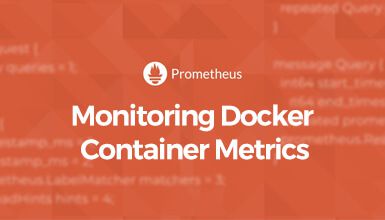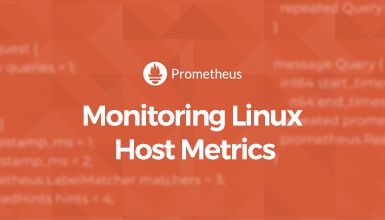Many Integrations
There are a lot of exporters that help in exporting existing metrics from third-party systems as Prometheus metrics into Prometheus. They are either official or externally contributed and maintained.
Cost-effective hosting of Prometheus cloud is ideal for your event monitoring requirements.
Cloud Clusters Prometheus cloud hosting provides a reliable, secure, and scalable solution for hosting your Prometheus managed service.

Install Prometheus hosting quickly and conveniently without the hassle of a tedious installation process.

Unlike other SaaS applications, Cloud Clusters has fewer restrictions on the number of login users, database connections, etc.

Enjoy managed Prometheus hosting with constantly enriched features at an affordable price. Hosting plans start at $4.99/m. You will never get an overage charge for the high traffic usage.

Provides round-the-clock technical support to help you resolve any issues related to Prometheus cloud hosting.

Our 7-day free trial enables you to try our managed Prometheus hosting without any hassle. Get your free Prometheus hosting trial now. Our support team can help you migrate your existing onto our platform for FREE.

The managed Prometheus hosting makes the Prometheus backend resilient enough to handle fluctuations in the volume of data. Clients can upgrade or downgrade their plans with one click in the control panel.

All of the queries created for Prometheus cloud will also run on your MaaS platform. This functionality is unique in the Monitoring as a Service market.

Monitoring a large project needs to scrape all the metrics, which can be a complex task. Cloud Clusters Prometheus hosting service saves you the effort of scaling open-source Prometheus for monitoring hundreds or even thousands of endpoints.
CloudClusters provides clients with a safe and reliable managed Prometheus cloud hosting environment.

Prometheus hosting also provides a free SSL certificate to protect the website's security and improve the security of information network transmission.

Isolation from noisy neighbors gives high security to the Prometheus cloud.

Compared to shared hosting, Prometheus hosting uses Docker container technology to isolate and protect each hosted website, enhancing website security.

Prometheus hosting provides web application firewall protection to protect websites from cyberattacks and malicious behavior.
Cloud Clusters managed Prometheus hosting lets you create and scale high-availability Prometheus cloud hosting environments in a few clicks.

Register with us via the 'Sign Up' button. Then choose a plan, confirm the version and data center location, and install Prometheus hosting with just a few clicks.

In the control panel, you can add your custom website domain, install free SSL, set the website admin password, and manage the DNS records and HTTP redirects.

Find your installation information through Cloud Clusters control panel. Log in to Prometheus Admin Panel.

With proper configuration and management, Prometheus can provide valuable insights into the performance and health of your systems.
Prometheus collects rich metrics and provides a powerful querying language. It has many advantages over other monitoring tools.

There are a lot of exporters that help in exporting existing metrics from third-party systems as Prometheus metrics into Prometheus. They are either official or externally contributed and maintained.

Prometheus provides PromQL, a functional query language, that allows slicing and dicing of collected time-series data to generate ad-hoc graphs, tables, alerts, etc.

Prometheus has a built-in expression browser for visualizing data. Besides that, it also allows for Grafana integration or a console template language to visualize Prometheus metrics.

Prometheus can send notifications about firing alerts to external services based on the alerting rules you set, monitoring the health of your servers, apps, and services.

New to Prometheus and not sure where to start? We'll walk you through the basics so you know what to expect along the way.

Prometheus supports basic authentication for connections to the Prometheus expression browser and HTTP API.
Read More >
Advisor analyzes and exposes resource usage and performance data from running containers. cAdvisor exposes Prometheus metrics out of the box.
Read More >
Prometheus offers a variety of service discovery options for discovering scrape targets, including Kubernetes, Consul, and many others.
Read More >
The Prometheus Node Exporter exposes a wide variety of hardware-related and kernel-related metrics.
Read More >The most commonly asked questions about Cloud Clusters Prometheus hosting service below.